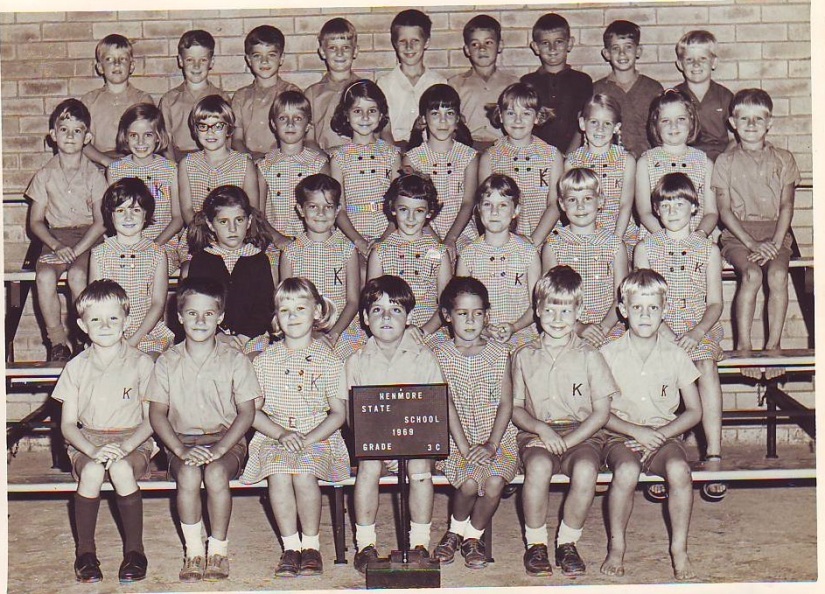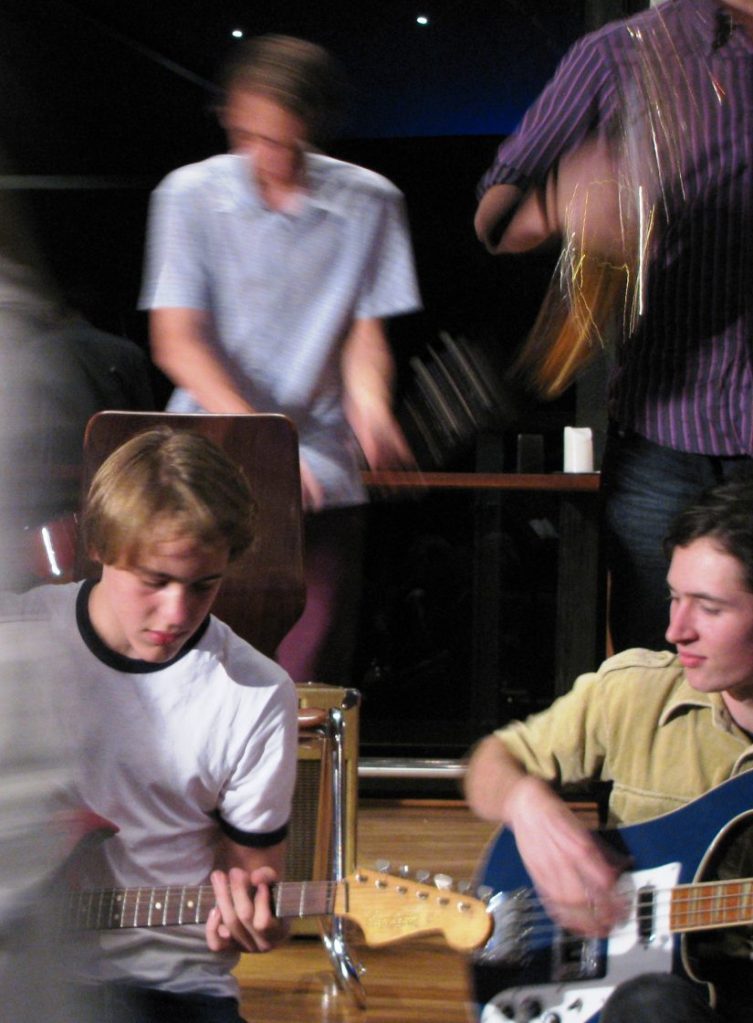Have you ever found yourself reciting a poem you learnt many, years ago at school? One that you were tasked to learn by rote and recite out loud in front of the class?
Why do these words stick like Super Glue to our permanent memory cells?
When so much else fails to the memory wayside?
Is it because rote learning is a little like brainwashing?

After reading Margaret’s post today, the poem ‘Tarantella’ came to mind. I love the use of onomatopoeia in that poem, and I like that the poem is factual, apparently.
I cannot reproduce the whole of the poem below for copyright reasons, so I have redacted some lines. Which sort of spoils the effect, so I have redacted minimal amounts and cited the author, of course.

All it needs is a semi-related trigger and I’ll robotically begin to articulate those words from the poem, learnt word for word, so very long ago.

If it is a type of rote learning, then for goodness sake why do we spend hours teaching our kids complicated strategies to work out their times tables, when a few weeks of chanting would translate to a life long skill without need for any mental refreshment, ever.
Equally concerning is what other values or words might be ingrained in our memory banks at a tender age by chanting brainwashing?
Luckily for me, this brainwashing is nothing more sinister than my times tables and a Hilaire Belloc poem with a bouncy repetitive rhyme. But as a gift to Miranda, that poem has a conclusion filled with doom, albeit twenty years later, (when it was written), and the memory of the inn may have faded?
The Miranda of Hilaire Belloc’s “Tarantella” is Miranda Mackintosh whom Belloc met at an inn in the Pyrenean hamlet of Canranc on the River Aragon in 1909. The poem, written twenty years later, was a New Year’s present to the Scottish Miranda. The holograph copy is inscribed: “For Miranda: New Year’s 1929.”
http://www.poetrybyheart.org.uk/poems/tarantella/
Tarantella by Hiliare Belloc
Do you remember an Inn, Miranda?
Do you remember an Inn?
And the fleas that tease in the High Pyrenees,
And the wine that tasted of tar?
And the cheers and the jeers of the young muleteers
(Under the vine of the dark veranda)?
****************** ?
******************?
And the cheers and the jeers of the young muleteers
Who hadn’t got a penny,
And who weren’t paying any,
And the hammer at the doors and the din?
And the hip! hop! hap!
Of the clap
Of the hands to the swirl and the twirl
Of the girl gone chancing,
Glancing,
Dancing,
Backing and advancing,
Snapping of the clapper to the spin
Out and in–
And the ting, tong, tang of the guitar!
Do you remember an Inn,
Miranda?
Do you remember an Inn?
Never more;
Miranda,
Never more.
Only the ****************;
And Aragon a torrent at the door.
No sound
In the walls of the halls where falls
The tread
Of the feet of the dead to the ground,
No sound:************
Of the far waterfall like doom.

Do you have an poem that has become an earworm over time?
Something that sticks?
Inspired by Margaret‘s photos of the Pyrenees.


The wind was a torrent of darkness among the gusty trees;
The moon was a ghostly galleon tossed upon cloudy seas …
LikeLiked by 2 people
My memory doesn’t extend to that one? The Ancient Mariner??
LikeLike
TSK ! – The Highwayman.
LikeLiked by 1 person
Never heard of it
LikeLike
[faints]
LikeLiked by 1 person
Clearly a massive gap in my education, M- R
LikeLiked by 1 person
I feel proud to have inspired this – very different – post! I too have this poem in my memory box. Other examples of rote-learning were pure torture. Mine was church school, and I remember trying so hard to commit, as demanded, the whole of 1 Corinthians 13 to memory, failing, and spending an hour in detention as a result: ‘Though I speak with the tongues of men and of angels, and have not charity, I am become as sounding brass, or a tinkling cymbal……’ – all 13 verses! It put me off rote learning for life, and I STILL don’t know my times tables! Nevertheless, other poems often come unbidden to mind (not this minute, obviously!) and I quite welcome them. Brainwashed by such experiences? I’m not sure. On the contrary, it may have caused me to question things more. My values and ideals now are not the ones my father in particular tried to instill in me. Interesting! I’ll think more about this one.
LikeLiked by 1 person
I guess it is not intentional brainwashing. But it feels like that effect in that it is indelible in one’s mind. But in order for it to be indelible, I guess I have to recall it with some fondness?
I do like the rhyme and words in this one!
LikeLiked by 1 person
Yes, memorising the unlovable is luckily impossible.
LikeLike
Corinthians must have been awful to memorize?
LikeLiked by 1 person
Yes….
LikeLiked by 1 person
While learning by reading only our mind diverts to other things to what we are watching. By repeating your mind takes note of what you hear. We had to learn poems and tableslike this. I enjoyed and still remember but it doesn’t brainwash. Perhaps rythem in rote learning plays a great part.
LikeLiked by 1 person
No doubt. Rhythm is attractive to our ears and our sense of order and predictability. It is also important for children in learning to spell. This persistent memory sounds like a sort of brainwashing but I did mean this in a tongue in cheek sense, Indira.
Do you think distractions are less with listening than reading? I find the reverse, is the case for me. I get more distracted when listening.
LikeLiked by 1 person
We all react differently in a particular situation. I also think that in childhood we may get distracted and so out elders thought and induced this way of learning. If the subject is of our choice we don’t get distracted when reading or hearing. 🙂
LikeLiked by 1 person
Good point, Indira. The ‘ brainwashing’ aspect of that if you can call it that, is intentional, and it also makes learning a little more fun!!
LikeLiked by 1 person
Wish we can make children appreciate good things about everyone’s culture, tradition, religion etc.
LikeLiked by 1 person
I am sure that there are songs we could teach them that would be helpful in that?
LikeLiked by 1 person
I’m with M-R on this. Alfred Noyes:
The wind was a torrent of darkness among the gusty trees.
The moon was a ghostly galleon tossed upon cloudy seas.
The road was a ribbon of moonlight over the purple moor,
And the highwayman came riding—
Riding—riding—
The highwayman came riding, up to the old inn-door.
It tells a full (sad) story, rhymes and scans. Naturally, it would be sneered at these days.
LikeLiked by 1 person
Sounds good, Colonialist. I am still not familiar with it. Must look it up. Did you learn it in school?
LikeLike
In school, indeed, where it was a favourite among the scholars
LikeLike
Each country seems to have a standard collection of poems that they drill into students. Perhaps the choice reflects cultural likes/dislikes? I know we were heavily invested in following the British model here until more recent times.
LikeLike
Invictus by William Ernest Henry hangs over my head constantly. Rather prefer the poetry of Rod McKuen than hangs there too.
LikeLiked by 1 person
It seems to be poems and times tables that stick, Peggy! Times tables don’t rhyme so I wonder what it is that makes them so persistent. I don’t know Henry’s Invictus, so will have to look it up. Is it good?
LikeLiked by 1 person
It’s strong. I think it’s about resilience.
LikeLiked by 1 person
I like the sounds of that
LikeLiked by 1 person
Times tables are full of repetition which is a form of rhyme!
LikeLiked by 1 person
There you go! The explanation of why they persist in one’s ear for so long! Rhyme is such fun. My brain seems particularly attuned to looking for rhyme, if I do try to write poetry. That sing-song characteristic of up and down tones is quite addictive!
LikeLiked by 1 person
I hadn’t heard of this one. For me it was A Fairy Went A Marketing and also Hiawatha.
LikeLiked by 1 person
A Fairy went A Marketing – Different teachers choose different poems for their students, assuming these ones originated from your school years, Luanne? Or was or a favorite bedtime story?
LikeLiked by 1 person
The first I chose to memorize for a classroom contest. The second we learned at camp for a performance for the parents.
LikeLiked by 1 person
These early memories are so persistent. I am trying to think what purpose they may serve us, biologically speaking. When they have little relevance to our lives as an adult.
LikeLiked by 1 person
Well, for me they had a profound effect because I’m a poet. So they probably had a hand in making me into a poet. Nursery rhymes and childhood songs like “My Bonnie Lies Over the Ocean” also had a hand in it. I like to think that memorization of poems and nursery rhymes is a building block of reading. It also helps with all forms of writing, the development of creativity, and learning math and science, too.
I wish they still had kids do it. My kids did, but their school was a bit unusual. The first poem they memorized was “Keep a Poem in Your Pocket.”
LikeLiked by 1 person
Now that is an appropriate poem for your kids to memorize, especially with their Mum being a poet!
Maths and Science being aided by poetry. I am sure there is a link but I can’t see it myself. I hear that music and maths have close connections too. I can’t see evidence of that in my family, as my child who is a maths wiz is not that musical at all, and the music progeny is not that mathemathical! But I will take your word for it.
My earliest poems were those of A A Milne, (of Winnie the Pooh fame), but I always loved reading, Luanne. Were you an early reader too?
LikeLiked by 1 person
I was. I can’t remember how I learned to read, but at 5 I was reading Bobbsey Twins series books. I have a very distinct memory from that period about it. I also remember learning how to spell ice cream because my parents used to spell it out 😉 when I was very tiny. Mom taught my brother to read with flashcards, but I know I did not have those nor would I have needed them. I was a voracious reader from the getgo.
LikeLiked by 1 person
ice cream! What a fun word to know early on. I used to have a rhyme to teach my daughter how to spell marvellous.
LikeLiked by 1 person
I love Tarantella! I hated poetry at school, but learnt parts of poems in adulthood, including one of Paul Celan’s, in German and the English translation….
LikeLiked by 1 person
It is the melody within the words that draws me back time and time again to Tarantella. Like an old song we know so well. How does that poem translate, Sue? Do you get the same sense, the same feel from both language versions?
LikeLiked by 1 person
Not entirely….p
LikeLike
Yes, I suspected that to be so. Language is quite specific. I have been frustrated to find that novels change significantly when they are translated. And we all know what happens when American movie studios get hold of a blockbuster foreign film/story and try to re-make it into their own. Moreoften, it doesn’t work as well as in the original culture.
LikeLiked by 1 person
Totally agree….it annoys me intensely
LikeLiked by 1 person
…and as you say, it is the melody, the rhythm
LikeLiked by 1 person
There is something comforting in that regularity of beat!
LikeLiked by 1 person
There certainly is!
LikeLiked by 1 person
I do indeed! One poem my grandmother used to recite to me often springs to mind and that’s ‘The Pedlar’s Caravan’ by William Brightly Rands. I’ve absolutely no idea why she favoured this one, but it has definitely stuck in my brain over the years !
LikeLiked by 1 person
I looked up this one. The rhyming couplets give that sing song -y feel to this poem. Perhaps your Grandma remembered a visiting pedlar or wished to be a nomad travelling around on the road? Her granddaughter clearly inherited a love for travel, Marion?
LikeLiked by 1 person
That’s so true Amanda, I hadn’t thought of it like that! Hope you have a good weekend,
LikeLike
Ahhh, you worry about the copyrights for the poem written in 1929 and that’s why you didn’t quote it in full?? You are a much more… let’s say holy person than I am. But we knew this.
I have memorised a dialogue which was used to drill the British English phonetics into us at the university. The professor was the same that taught my mother 24 years earlier. The dialogue wasn’t the same:
– Have you seen Othello on the television last night?
– The opera, you mean. I didn’t, I was out.
– I saw it, and quite enjoyed it.
– Did you? I thought you didn’t approve of television.
– I don’t, as a regular thing. But I happened to be round at my sister’s and she wanted to see it. So I watched it too.
LikeLiked by 1 person
Me – Holy?! Nah…. perhaps I do respect copyrights more than most because I have had my artwork pinched and used by someone else in a video he was making money from.
Great dialogue to teach the various vowel sounds. Clever idea. I had to scratch my head to remember a dipthong lesson or two I had at school in Speech and Drama lessons. That hasn’t stuck like the poem did! Unfortunately. Fancy the Professor being the same on that taught your Mother! Wow – that is loyalty. Tell me, was it English you studied?
LikeLiked by 1 person
Maybe I meant wholesome. 😀 Indeed, I studied English language and literature at the University of Ljubljana.
LikeLiked by 1 person
Smarty!!! No wonder your English is perfect
LikeLiked by 1 person
Bahhaha. For sure! And I never finished my degree…
LikeLiked by 1 person
Doesn’t really matter though. Your English is still perfect. Would you ever go back to do more study, Manja?
LikeLiked by 1 person
I tried to years later but the amount of money I’d needed made me decide no.
LikeLiked by 1 person
So that is the issue in Slovenia too? Education used to be completely free here from seventies till the nineties. Of course students can opt for an interest free loan for the tuition fees but it is a loan and eventually has to be paid back unless you don’t intend to work.
LikeLiked by 1 person
Oh, in Slovenia high education is free too (at least it used to be) if you’re a regular student. I wanted to finish my studies years after my regularity stopped.
LikeLiked by 1 person
What constitutes a regular student?
LikeLiked by 1 person
Well, you have 4+1 years to finish your studies in the allotted, “regular”, time, or at least it was so when I was there. After that you have to pay for each exam.
LikeLiked by 1 person
That sounds like a good incentive to not drag out the studies, as I remember some folks doing in my time.
LikeLiked by 1 person
Oh yes Amanda, a poem I recite everytime I buy practical shoes.
New shoes, new shoes
Red and pink and blue shoes
Tell me what would you choose
If they’d let us buy.
Buckle shoes, bow shoes
Pretty pointed toe shoes
Like some
So would I.
BUT
Fat shoes, flat shoes
Stomp along like that shoes
Wipe them on the mat shoes
That’s the sort they’ll buy!
And now that will be in my head all day…
LikeLiked by 1 person
Sorry Chris!! It is another earworm!! I still have Tarantella in my head and just when it goes away, another comment revives it again. Not that I mind at all as I love the bounce of the words. Where did that poem originate?
LikeLike
It was one we learned at school.
LikeLiked by 1 person
Sounds like Year 2?
LikeLike
When it’s daffodil time I always think and say To Daffodils by Robert Herrick … Fair daffodils we weep to see you haste away so soon. Then there is one Afrikaans Oktober maand (Month October) Dit is die maand Oktober, die mooiste, mooiste maand …. It is the month Oct the most beautiful month…
LikeLiked by 1 person
October is a beautiful month, Ineke! I don’t know that poem but it sounds lovely, as are Daffodils themselves. I wish I could grow them here. It seems too hot for them here
LikeLike
I didn’t know that its too hot. come to think of it they don’t like the heat much.
LikeLiked by 1 person
I have managed to get freesias and a couple of lilies to grow, despite the heat.
LikeLiked by 1 person
The night was dark and stormy
The toilet light was dim
I heard a crash and then a splash
My gosh, he’s fallen in!
I don’t remember any poems from school but we had a book called ‘Cinderella Dressed in Yella” which had some quite naughty poems in it. That’s the main one I remember.
I also used to be able to recite whole chunks of dialogue from The Goon Show. Friends just thought I was weird.
I do like your Hilaire Belloc poem.
LikeLiked by 1 person
The Goon show- oh my. My ears were force fed that every saturday lunchtime as my father listened to it religiously. I hated it so, mostly tuned out to it. That high pitched voice is hard to eliminate from my memory, though. If you liked the goons, I suppose you were able to appreciate Benny Hill. His TV show’s theme tune is another rather annoying earworm and I will have that in my ear for the rest of the night, now that I have thought of it. Aah!
LikeLiked by 1 person
Our regular Saturday listening was The Goon Show, My Word/My Music and the Science Show. I had to buy CDs to introduce my boys to the Goons. Fortunately, they loved them too!
Oh, no. Couldn’t stand Benny Hill. We did, however, love the Goodies. Put that theme tune in your head instead. 😀
LikeLike
Thanks but their thene song isnt as catchy unfortunately. The Goodies were fantastic. Used 2 watch them every night b4 dinner. Bill Oddie was my favorite.
LikeLiked by 1 person
We do swing from extreme – rote or exploratory. I think there are certain things (like you said, multiplication tables) which are simply memorized…. no mess no fuss. While others are better learned through experience. Schools seems to have difficulty incorporating both types of learning in their curriculum. I wonder why.
LikeLiked by 1 person
I think curricula try to move with the times and this are subject to fads. In trying to incorporate so much, there is no time for things like chanting. It seems sometimes that the educators might decide to give children a small taste of lots of things rather than deep learning in a smaller number of areas. That could be a good or bad thing, depending on each individual child.
LikeLike